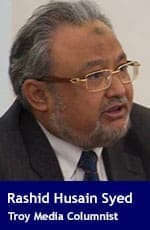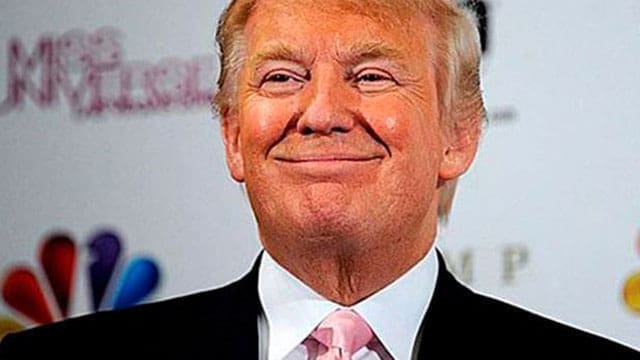Trudeau scrambles to avert crisis as $100B trade relationship faces tariff fallout

For interview requests, click here
Ottawa has sprung into action. It had to.
Following U.S. President-elect Donald Trump’s announcement of a proposed 25 per cent tariff on all imports from Canada and Mexico, the Canadian government reacted swiftly and decisively. The stakes for Canada, which is heavily reliant on exports to the United States, couldn’t be higher.
Approximately 97 per cent of Canada’s total oil exports flow south to the U.S., making such a tariff potentially catastrophic for the Canadian economy. While the U.S. would also suffer economic fallout, as the world’s largest economy, it is better positioned to weather the storm. Canada does not have that same cushion.
Immediately after Trump’s threat, Prime Minister Justin Trudeau reached out directly, making a phone call to the President-elect to establish rapport. This effort was particularly significant given the tense relationship between the two leaders during Trump’s first term in office. Trudeau followed up with a high-stakes, largely unannounced trip to Trump’s Mar-a-Lago estate for dinner last Friday.
 Donald Trump |
| Recommended |
| Trump’s tariff threats are more bark than bite
|
| Trump’s tariff gambit a threat to Canada’s agri-food sector
|
| Trump’s tariff plans loom over Canada’s energy sector
|
Though no breakthrough was announced after the meeting, it was clear that Trudeau took the matter seriously. Trump, however, remained firm in his rhetoric, tying the tariff threat to border security and the ongoing fentanyl crisis. “I made it very clear that the United States will no longer sit idly by, as our citizens become victims to the scourge of this Drug Epidemic, caused mainly by the Drug Cartels, and Fentanyl pouring in from China. Too much death and hardship! Prime Minister Trudeau has made a commitment to work with us to end this terrible devastation of U.S. Families,” Trump declared following the three-hour meeting.
While Trump did not soften his position, a senior Canadian official told CBC News there was cautious optimism about finding a resolution. The Canadians left Mar-a-Lago believing that progress was possible.
Trudeau’s team appears ready to act. According to Global News, the prime minister promised to bolster border security, including acquiring new helicopters long sought by the RCMP. Trudeau reportedly assured Trump that this initiative was a done deal, with meetings planned for the following week to formalize the measures. Public Safety Minister Dominic LeBlanc also announced plans to allocate more funding for advanced technology, drones, and additional personnel to patrol the border.
The RCMP announced on Friday that it is considering redeploying a quarter of its eastern workforce to priority operational areas, including the Canada-U.S. border. Provincial leaders echoed the urgency. Ontario Premier Doug Ford called for increased federal funding for law enforcement, offering Ontario Provincial Police resources to assist in border security efforts. Alberta Premier Danielle Smith went a step further, suggesting the creation of a provincial border patrol.
Smith also stressed the importance of energy security in U.S.-Canada relations. She highlighted that oil and gas pipelines were a key topic of discussion between Trudeau and Trump, emphasizing their role in strengthening economic and security ties. “It once again demonstrates that the path to a strong security and economic relationship with the United States is directly tied to our nation’s commitment to providing the United States with the oil and gas it requires to achieve its energy security and affordability goals,” she stated.
Smith urged Trudeau to scrap the federal government’s planned oil and gas emissions cap and prioritize new pipeline infrastructure. While such measures would likely appease U.S. concerns, they risk undermining Canada’s international climate commitments. Balancing economic priorities with environmental goals will be a significant challenge for the Trudeau government.
Trudeau, for his part, remains optimistic about resolving the issue. Reflecting on his government’s ability to renegotiate the North American Free Trade Agreement (NAFTA) during Trump’s first term, he emphasized Canada’s ability to secure a mutually beneficial relationship with its southern neighbour. “We rolled up our sleeves and we created growth across both sides of the border,” Trudeau told reporters, reaffirming his commitment to fostering “constructive and responsible” collaboration with the United States.
The situation underscores the fragility of Canada’s economic ties with the U.S., highlighting the urgency for strategic action. While Trudeau’s government appears ready to make concessions, the path forward is fraught with economic and political challenges.
Toronto-based Rashid Husain Syed is a highly-regarded analyst specializing in energy and politics, with a particular emphasis on the Middle East. Besides his contributions to local and international newspapers, Rashid frequently lends his expertise as a speaker at global conferences. Organizations such as the Department of Energy in Washington and the International Energy Agency in Paris have sought his insights on global energy matters.
Explore more on Donald Trump, Trade, Canada-U.S. relations, Trudeau government, Canadian economy
The views, opinions, and positions expressed by our columnists and contributors are solely their own and do not necessarily reflect those of our publication.
© Troy Media
Troy Media is committed to empowering Canadian community news outlets by providing independent, insightful analysis and commentary. Our mission is to support local media in building an informed and engaged public by delivering reliable content that strengthens community connections, enriches national conversations, and helps Canadians learn from and understand each other better.

